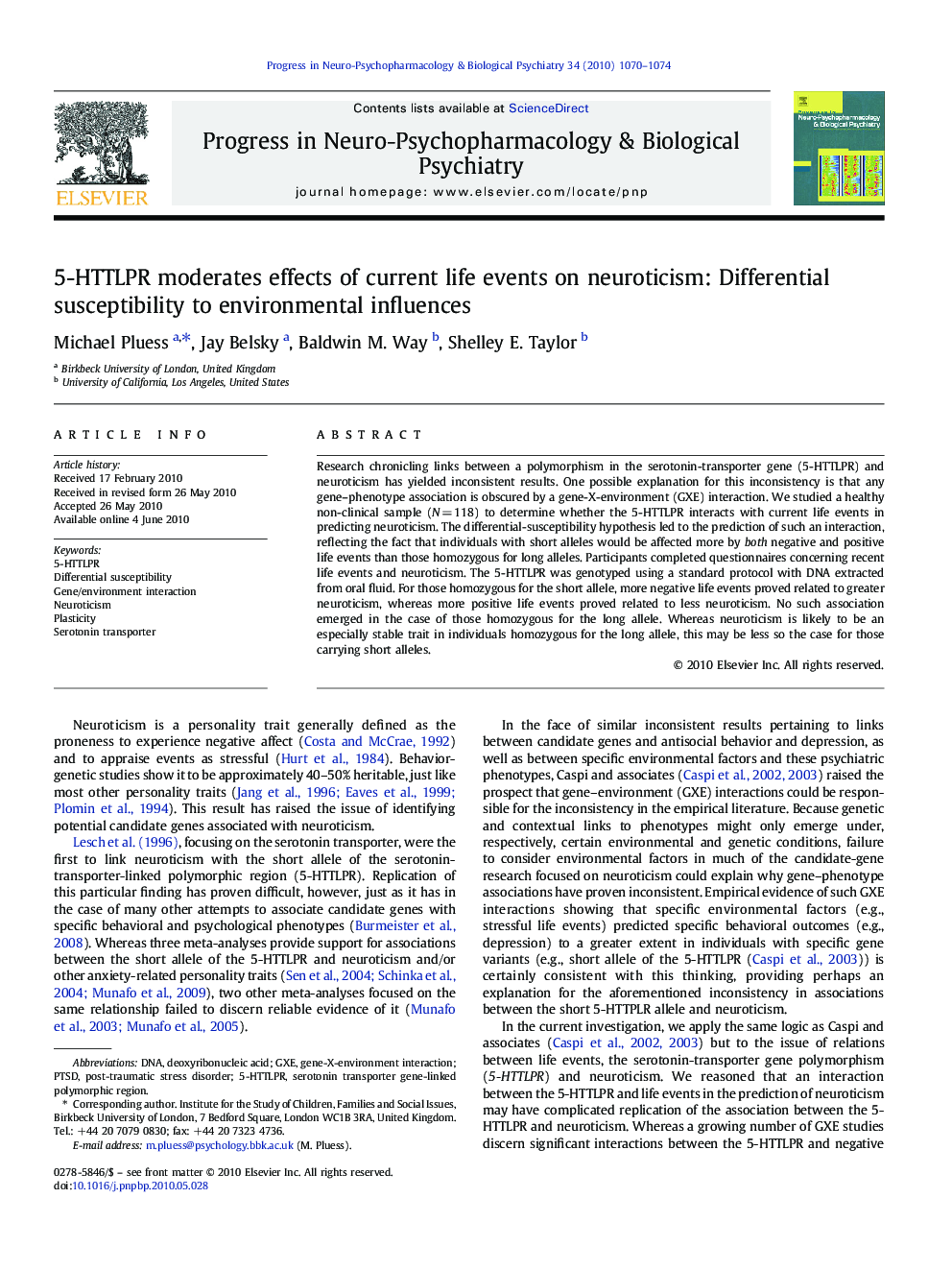| Article ID | Journal | Published Year | Pages | File Type |
|---|---|---|---|---|
| 2565393 | Progress in Neuro-Psychopharmacology and Biological Psychiatry | 2010 | 5 Pages |
Research chronicling links between a polymorphism in the serotonin-transporter gene (5-HTTLPR) and neuroticism has yielded inconsistent results. One possible explanation for this inconsistency is that any gene–phenotype association is obscured by a gene-X-environment (GXE) interaction. We studied a healthy non-clinical sample (N = 118) to determine whether the 5-HTTLPR interacts with current life events in predicting neuroticism. The differential-susceptibility hypothesis led to the prediction of such an interaction, reflecting the fact that individuals with short alleles would be affected more by both negative and positive life events than those homozygous for long alleles. Participants completed questionnaires concerning recent life events and neuroticism. The 5-HTTLPR was genotyped using a standard protocol with DNA extracted from oral fluid. For those homozygous for the short allele, more negative life events proved related to greater neuroticism, whereas more positive life events proved related to less neuroticism. No such association emerged in the case of those homozygous for the long allele. Whereas neuroticism is likely to be an especially stable trait in individuals homozygous for the long allele, this may be less so the case for those carrying short alleles.
